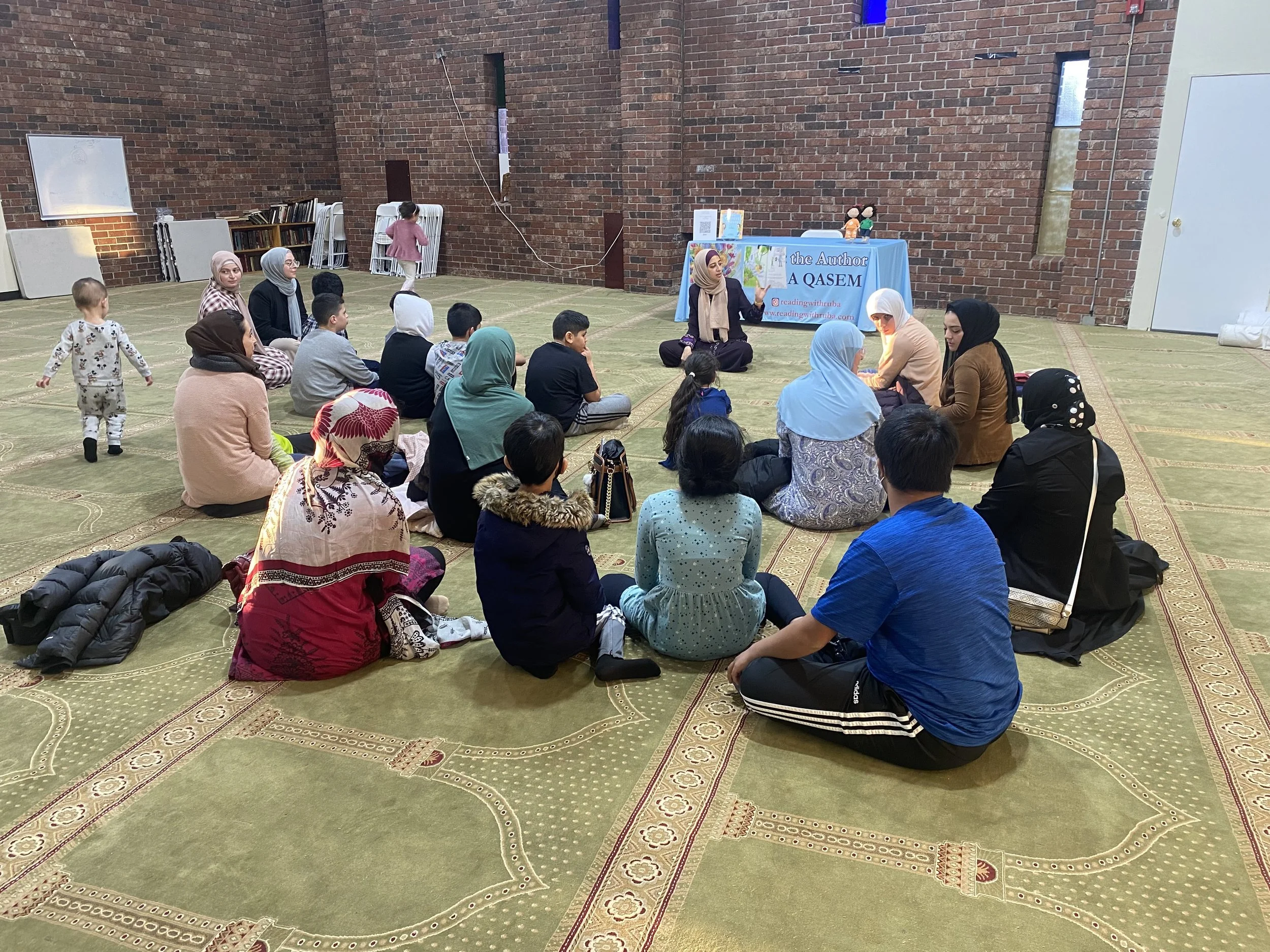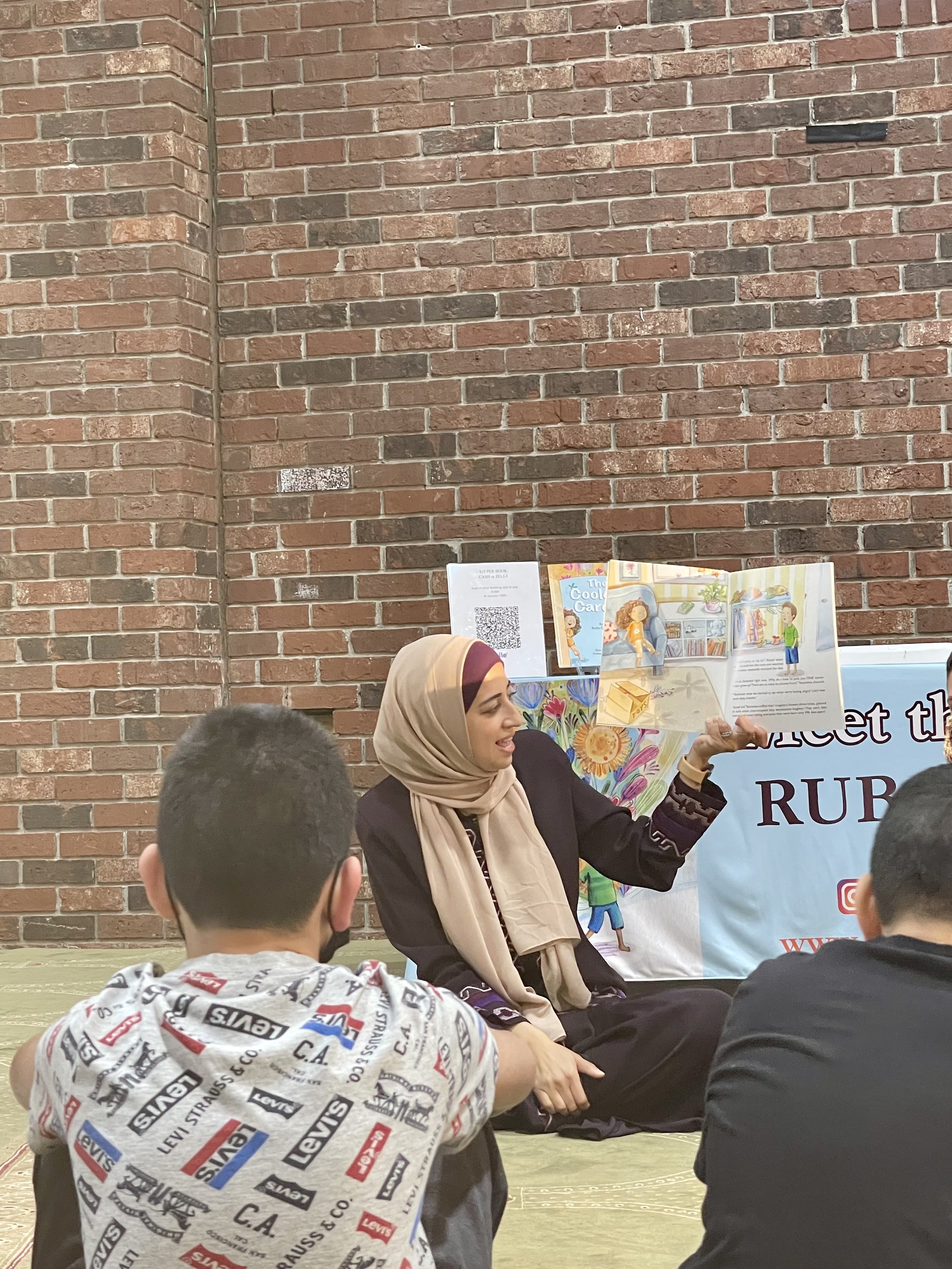Community iftar for disabled Muslims highlights what Ramadan is all about
Ruba Qasem reads her book “The Coolest Career” to students, teachers and families at Paterson’s Islamic Center of Passaic County on April 8, 2022. (Juhayna Alkurdi for Public Square Amplified)
PATERSON, NJ—On Friday, April 8th, the North Jersey chapter of MUHSEN held a community iftar in Paterson's Islamic Center of Passaic County. The iftar brought together disabled Muslims for a night of eating, playing and meeting author Ruba Qasem, who read her inspiring book "The Coolest Career." Qasem's book guides children through the emotions that come with the journey toward self-discovery and growth. The kids learned that there is no limit to who they can be, and the journey toward finding yourself is challenging but incredibly rewarding and fun.
Hosting an iftar for disabled folk to engage with their friends and families ensures that all Muslims—with all abilities—can practice and enjoy the communal aspects of Ramadan. If the community becomes so divided that every iftar table is separated by race, wealth or abilities, then we defeat the fundamental objective of Ramadan, which is to bring together the community and work together to better each other. The events held by MUHSEN not only work to teach students essential lessons on wellness and faith; they have also taught me, and numerous other workers and volunteers, about ourselves.
To be a thriving Muslim community, Islam emphasizes the importance of inclusivity, diversity and love. The basis of Islam is the ummah, a word that references the whole Muslim world, exceeding any societal divisions such as wealth, race, health or class. The ummah cannot be divided by social constructs. Instead, we are connected through our belief in the same God, and the concept is used to secure justice for Muslims and non-Muslims everywhere because we are taught not to create divides over worldly aspects. Islam clearly states that nobody has the right to oppress somebody else, regardless of one's religious beliefs or societal status.
Ruba Qasem reading her book “The Coolest Career” at Paterson’s Islamic Center of Passaic County on April 8, 2022. (Juhayna Alkurdi for Public Square Amplified) )
Throughout Ramadan, the concept of community becomes even more adored and powerful. Mutual aid increases, people visit each other and cook meals for others, and Muslims practice controlling their desires and overall eliminating greed. Ramadan rejects forms of greed that the modern world has become accustomed to, such as hyper-consumerism and extravagance. Fasting teaches us to focus on the spiritual nourishment of oneself and the community. The focus shifts from "how can I fulfill my current desire" to "how can I strengthen myself and others."
By creating environments that combine neurodivergent and neurotypical individuals, we learn how to understand others better. We realize that others express their emotions (love, sadness, excitement) differently and have their own ways of communication. It is our responsibility as individuals to learn the differences in our community. To not immediately associate a different form of expression or communication with something negative but as something you can learn and understand from others.
Communities become understanding, loving and intelligent once they practice diversity and inclusion. Such practices should always be a common goal amongst Muslims.


